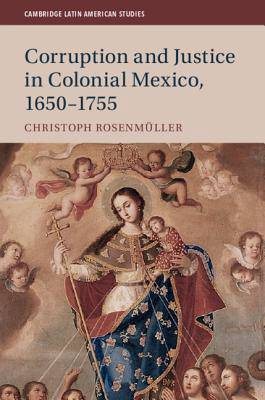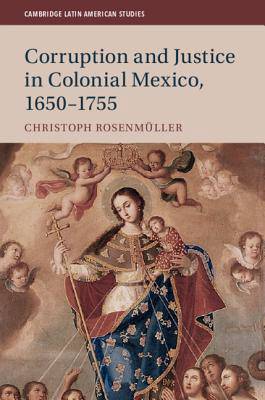
- Afhalen na 1 uur in een winkel met voorraad
- Gratis thuislevering in België vanaf € 30
- Ruim aanbod met 7 miljoen producten
- Afhalen na 1 uur in een winkel met voorraad
- Gratis thuislevering in België vanaf € 30
- Ruim aanbod met 7 miljoen producten
Zoeken
Corruption and Justice in Colonial Mexico, 1650-1755
Christoph Rosenmüller
€ 206,45
+ 412 punten
Uitvoering
Omschrijving
Corruption is one of the most prominent issues in Latin American news cycles, with charges deciding the recent elections in Mexico, Brazil, and Guatemala. Despite the urgency of the matter, few recent historical studies on the topic exist, especially on Mexico. For this reason, Christoph Rosenmüller explores the enigma of historical corruption. By drawing upon thorough archival research and a multi-lingual collection of printed primary sources and secondary literature, Rosenmüller demonstrates how corruption in the past differed markedly from today. Corruption in Mexico's colonial period connoted the obstruction of justice; judges, for example, tortured prisoners to extract cash or accepted bribes to alter judicial verdicts. In addition, the concept evolved over time to include several forms of self-advantage in the bureaucracy. Rosenmüller embeds this important shift from judicial to administrative corruption within the changing Atlantic World, while also providing insightful perspectives from the lower social echelons of colonial Mexico.
Specificaties
Betrokkenen
- Auteur(s):
- Uitgeverij:
Inhoud
- Aantal bladzijden:
- 360
- Taal:
- Engels
- Reeks:
- Reeksnummer:
- nr. 113
Eigenschappen
- Productcode (EAN):
- 9781108477116
- Verschijningsdatum:
- 2/05/2019
- Uitvoering:
- Hardcover
- Formaat:
- Genaaid
- Afmetingen:
- 213 mm x 236 mm
- Gewicht:
- 635 g

Alleen bij Standaard Boekhandel
+ 412 punten op je klantenkaart van Standaard Boekhandel
Beoordelingen
We publiceren alleen reviews die voldoen aan de voorwaarden voor reviews. Bekijk onze voorwaarden voor reviews.








